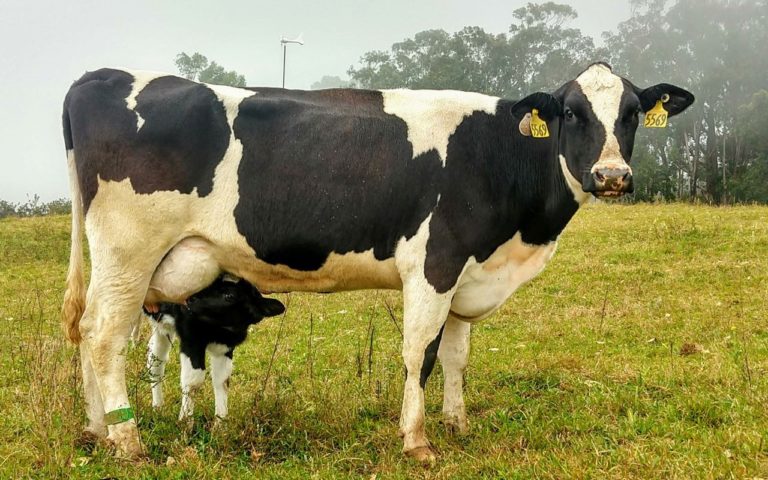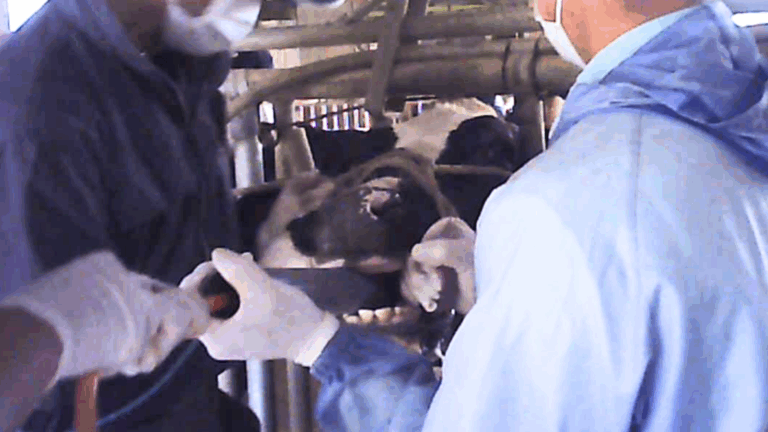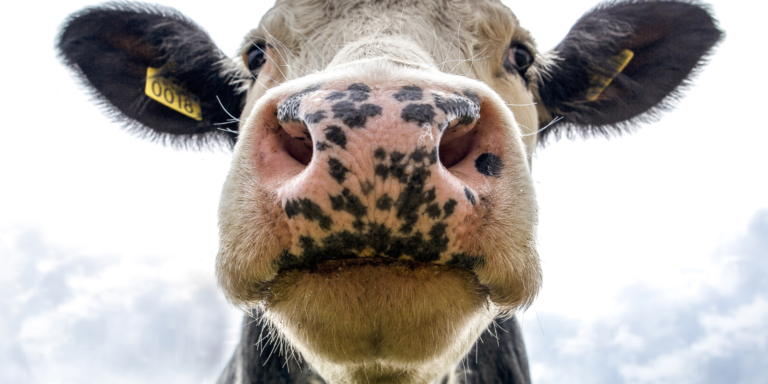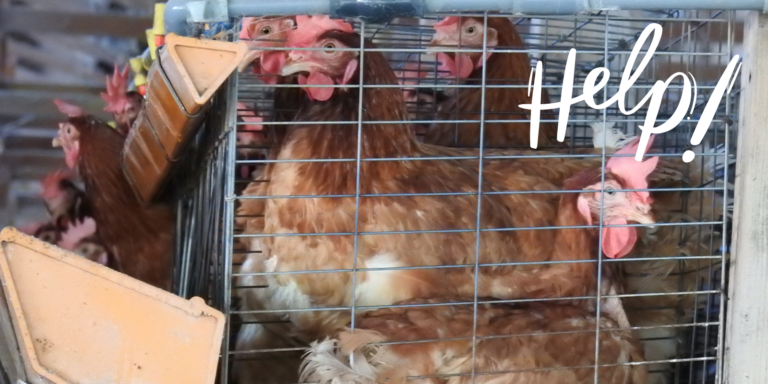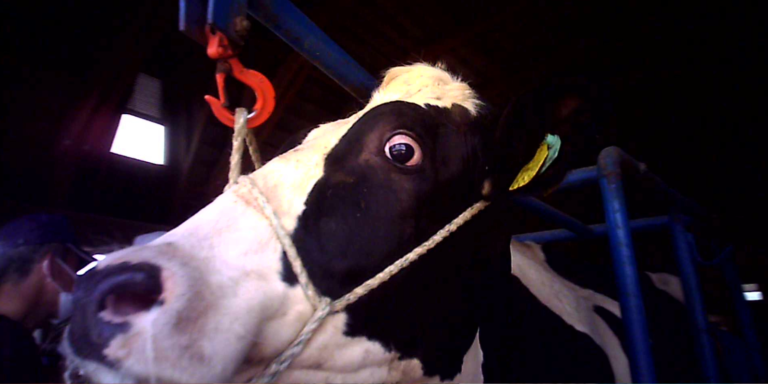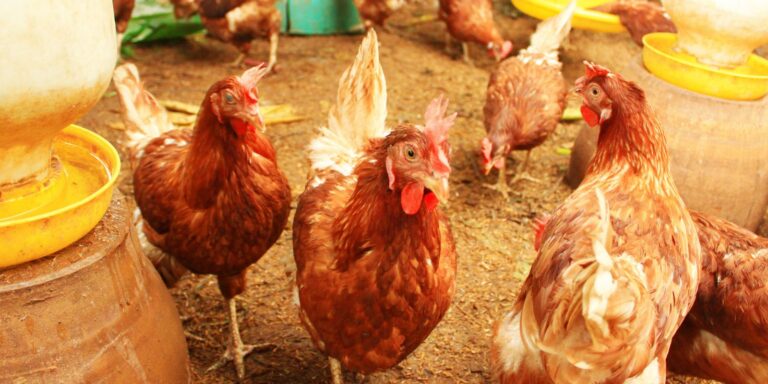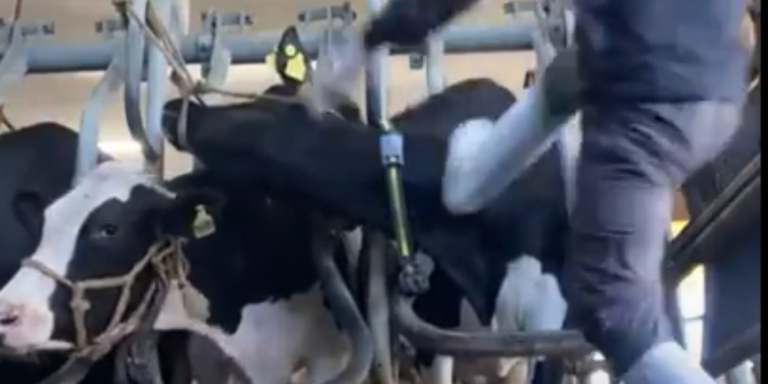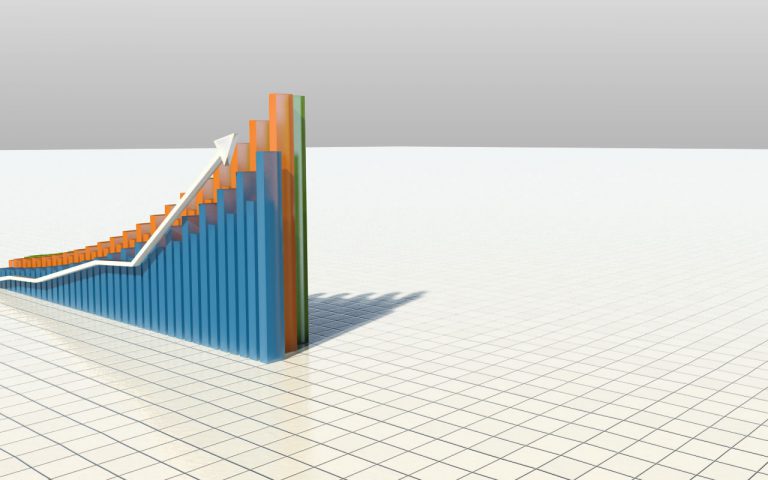The world is panicking about the novel coronavirus, but what effects is it having on animal agriculture?
In many places eateries have closed due to restrictions on going out, and food is being bought out at supermarkets. A problem is, because agricultural products for eateries and for markets differ in forms like packaging, the system is not equipped to simply redirect what used to go to restaurants to supermarkets. Not just eateries, but the situation is the same with cafeterias at schools and workplaces that are now closed.
Milk: sold out at stores, but being dumped at dairy farms
All agricultural products are affected, but the most perishable of livestock products, milk, seems to be taking the hardest hit. Milk requires refrigeration, and must be sold fairly quickly or processed into dairy products. It can’t be simply frozen like meat. Because the demand from eateries plummeted, excess milk has nowhere to go, and huge amounts of milk is being dumped at dairies across the United States and Canada *1 *2. Today’s dairy cows, who have been selectively bred, keep producing 10-20 times the natural amount of milk, so they must be milked.
To reduce the production of milk, some farms are considering reducing their herds, so that could be a good thing for cows *2. However, other farms would not reduce their herds so as to be able to recover when the demand returns.
With the demand for milk dropping in China, too, the dairy industry and the government agencies worked together to publish “Chinese Residents’ Milk and Dairy Products Consumption Guidelines”, encouraging higher consumption of dairy products to strengthen the immunity against the novel coronavirus *3. They are claiming that dairy is beneficial for boosting immunity especially for people deficient in protein. To back up this claim, the first paper they cite is research funded by a major dairy cooperative Agropur, so the credibility is questionable *4. Moreover, even though about 85% of the Chinese people are lactose intolerant, the guidelines encourage such residents to consume lactose-free dairy products and gradually take in lactose to develop tolerance *3.
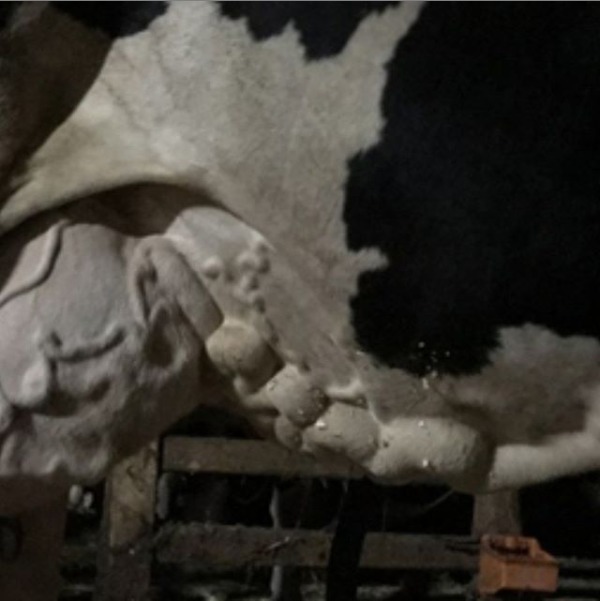
A difficult time for animal agriculture
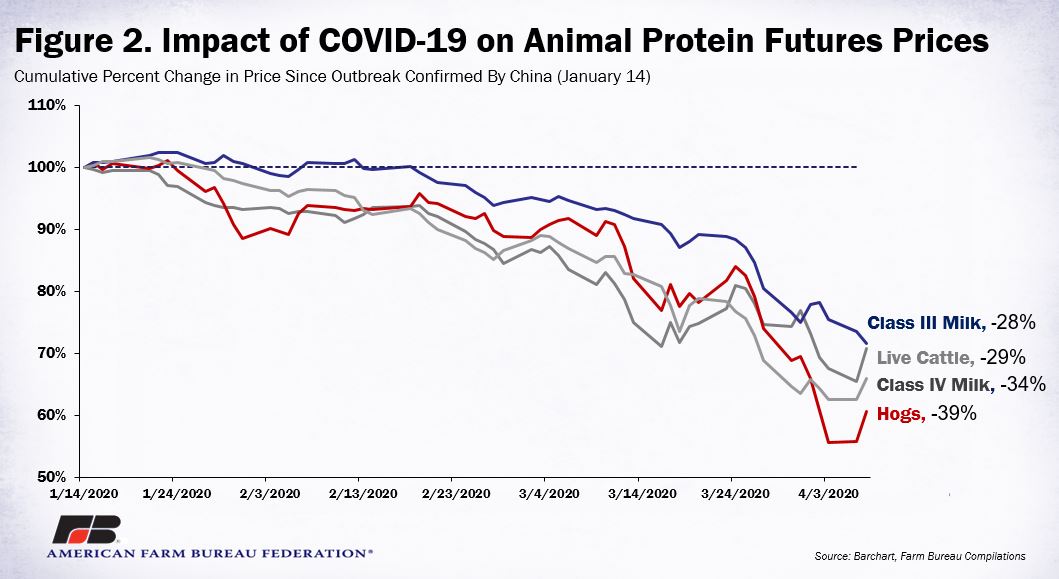
In India on the other hand, due to a rumored link between poultry and the coronavirus, sales of chicken halved and the price dropped by 70% *6.
With livestock farmers under difficult situations as a result, animal agriculture might experience some downsizing, and the number of animal victims might be reduced.
Due to coronavirus infections, there are increasing number of meat processing facilities that are being shut down, too. After nearly 300 employees were infected, a major meat company Smithfield Foods recently closed a major pork processing facility that represents 4-5% of the US pork production *7.
Meat processing is “essential”?
It’s not that every meat processing plant with a case of COVID-19 infection among its employees is being closed. Because so many people believe that humans require animal products, many countries designate meat processing as “essential”, and permit going to work for that purpose. For example in the United States, even at facilities where employees tested positive for COVID, exposed people can continue to work there as long as they don’t have symptoms, including fever *8.
With the workforce being reduced due to the coronavirus infections, America’s National Pork Producers Council has asked the Trump administration to exempt immigrant workers from travel restrictions, especially on the Mexican border *9.
The reduced number of flights is also affecting the livestock industry. Some countries import much of the eggs used for poultry operations. For example in Russia, hatching eggs for layer hens and broilers depend entirely on imports, posing an issue in face of reduced air transport *10. The situation is similar with turkeys, too. There is hope that the number of birds sacrificed for poultry may dramatically decrease. Because poultry operations around the world is at risk, the International Poultry Council is requesting assistance from the United Nations Food and Agriculture Organization, World Trade Organization, and the World Organisation for Animal Health (OIE) *10.
Meanwhile, Uganda’s government has closed all the livestock markets across the country *11. Compared to the so-called developed countries, this sounds like the most sensible response to the issue at hand.
Drawing lessons from this world crisis, humans should re-evaluate this unnecessary exploitation of other animals called animal agriculture.


